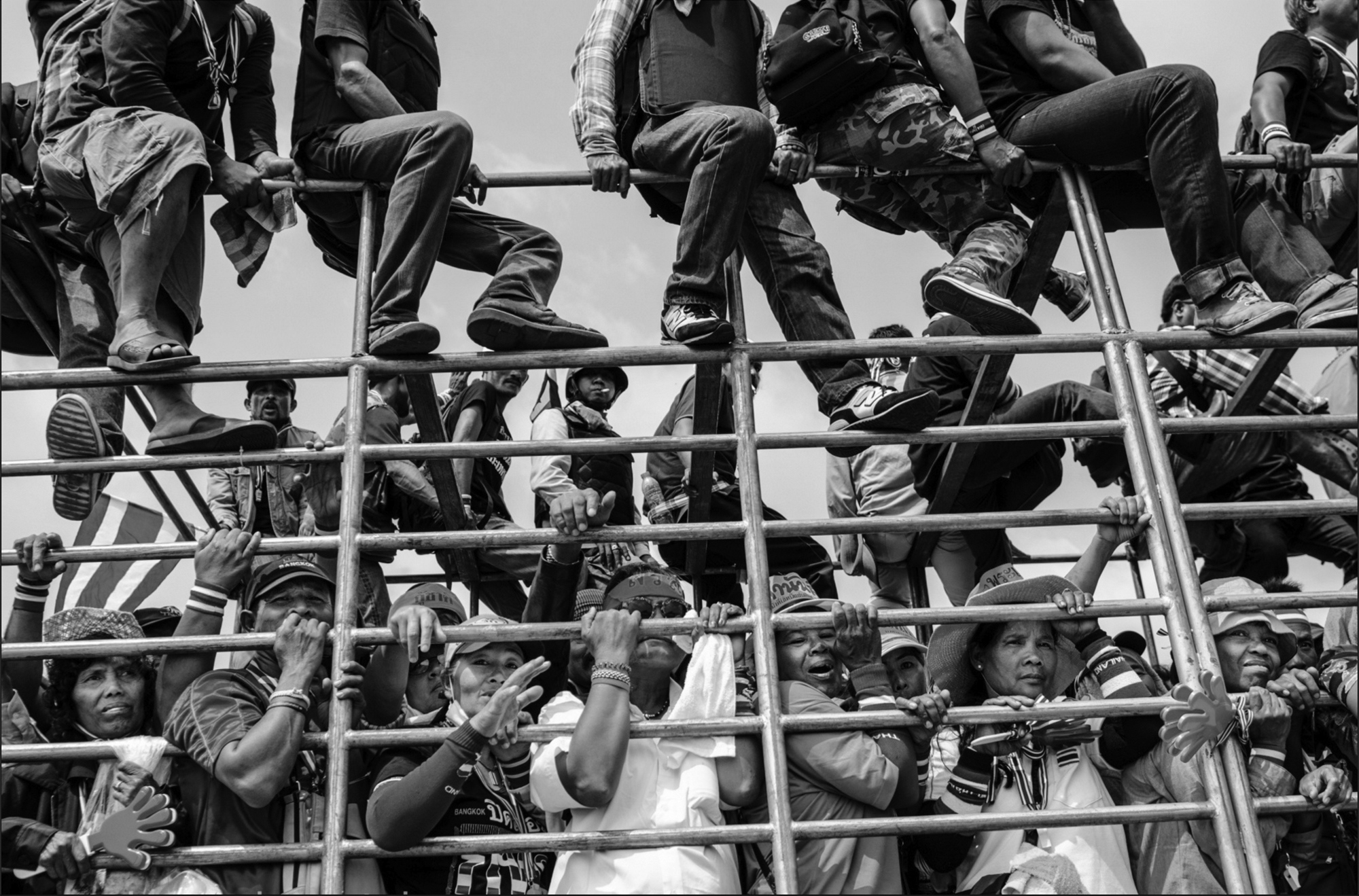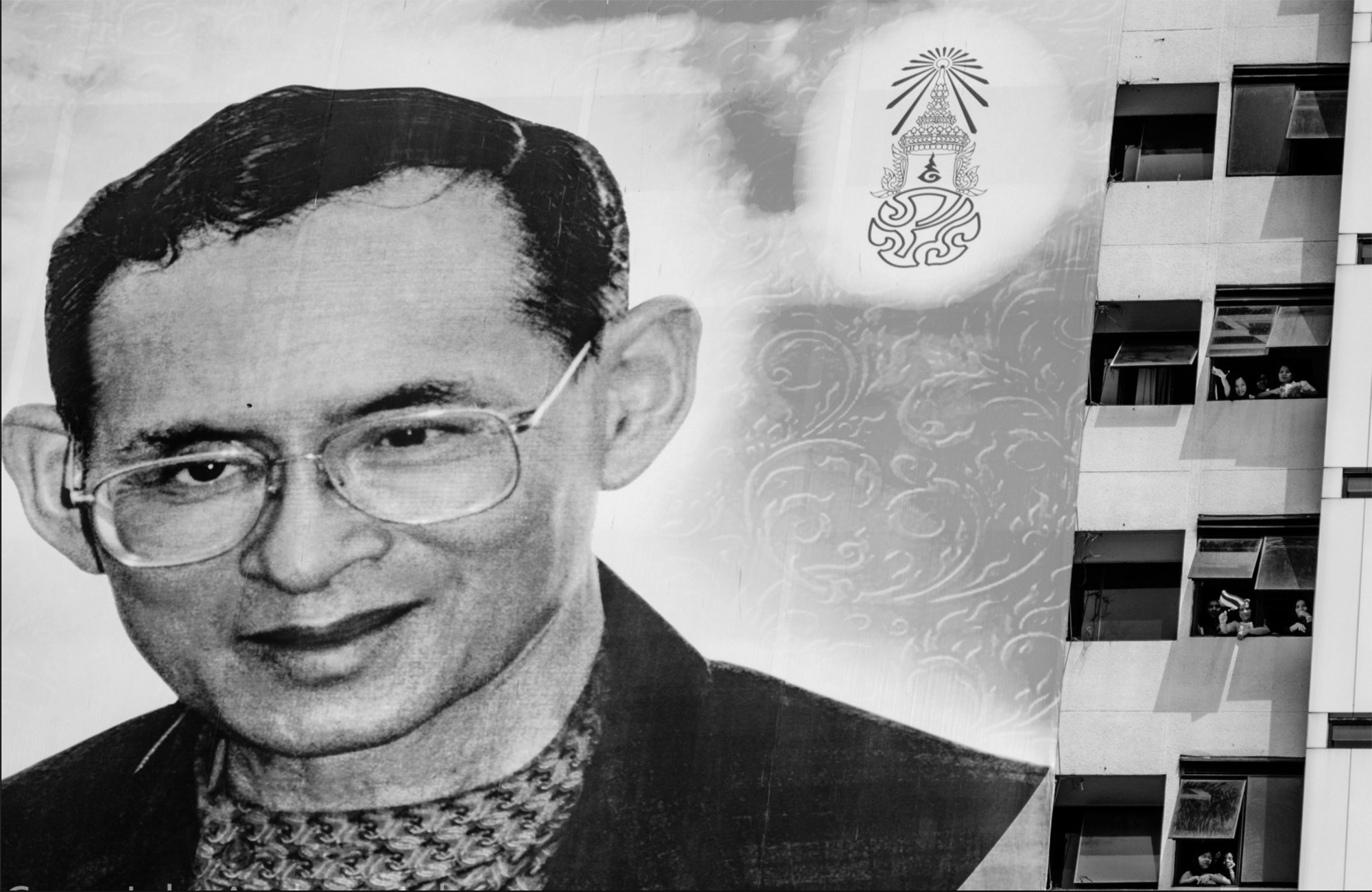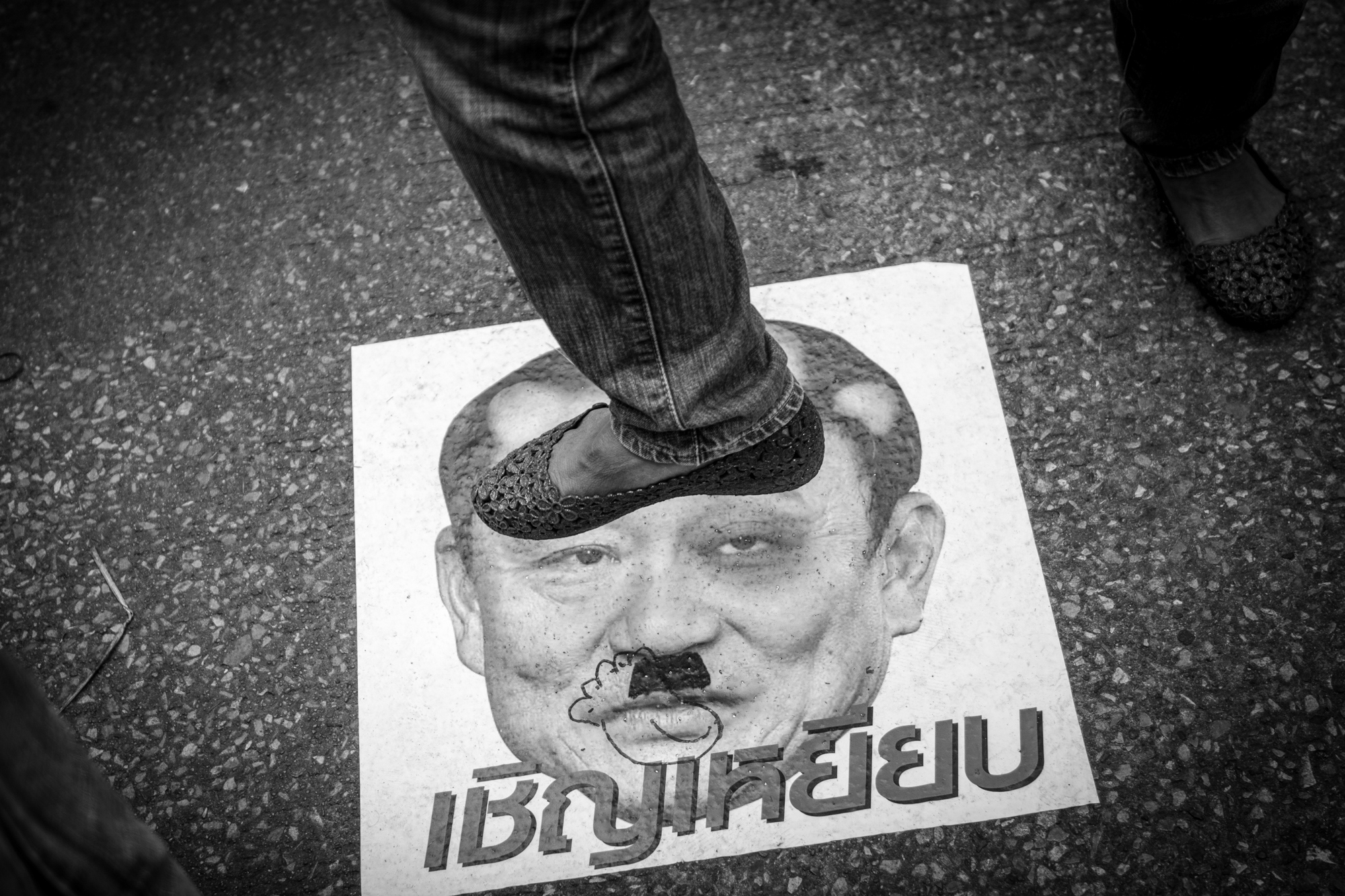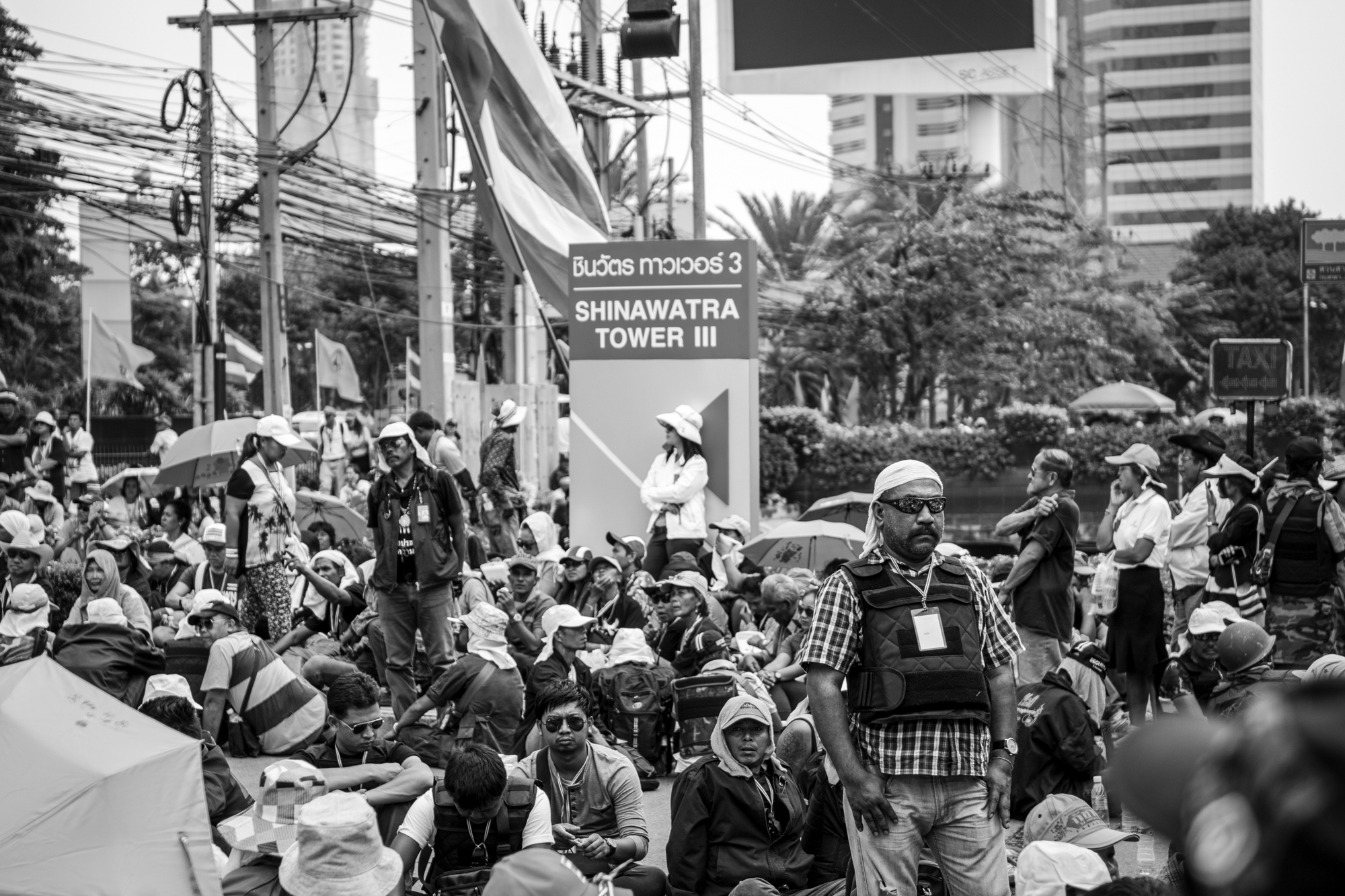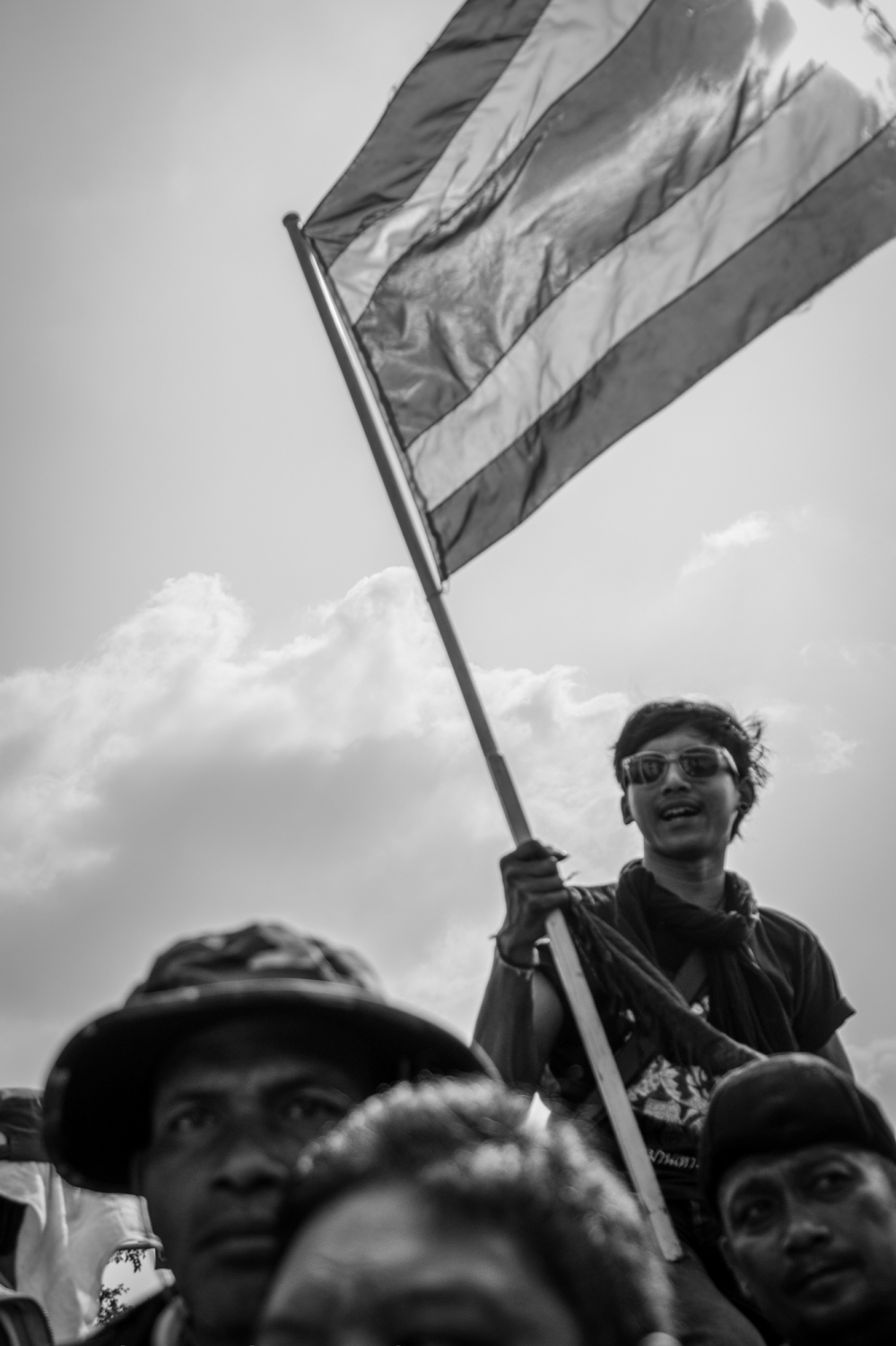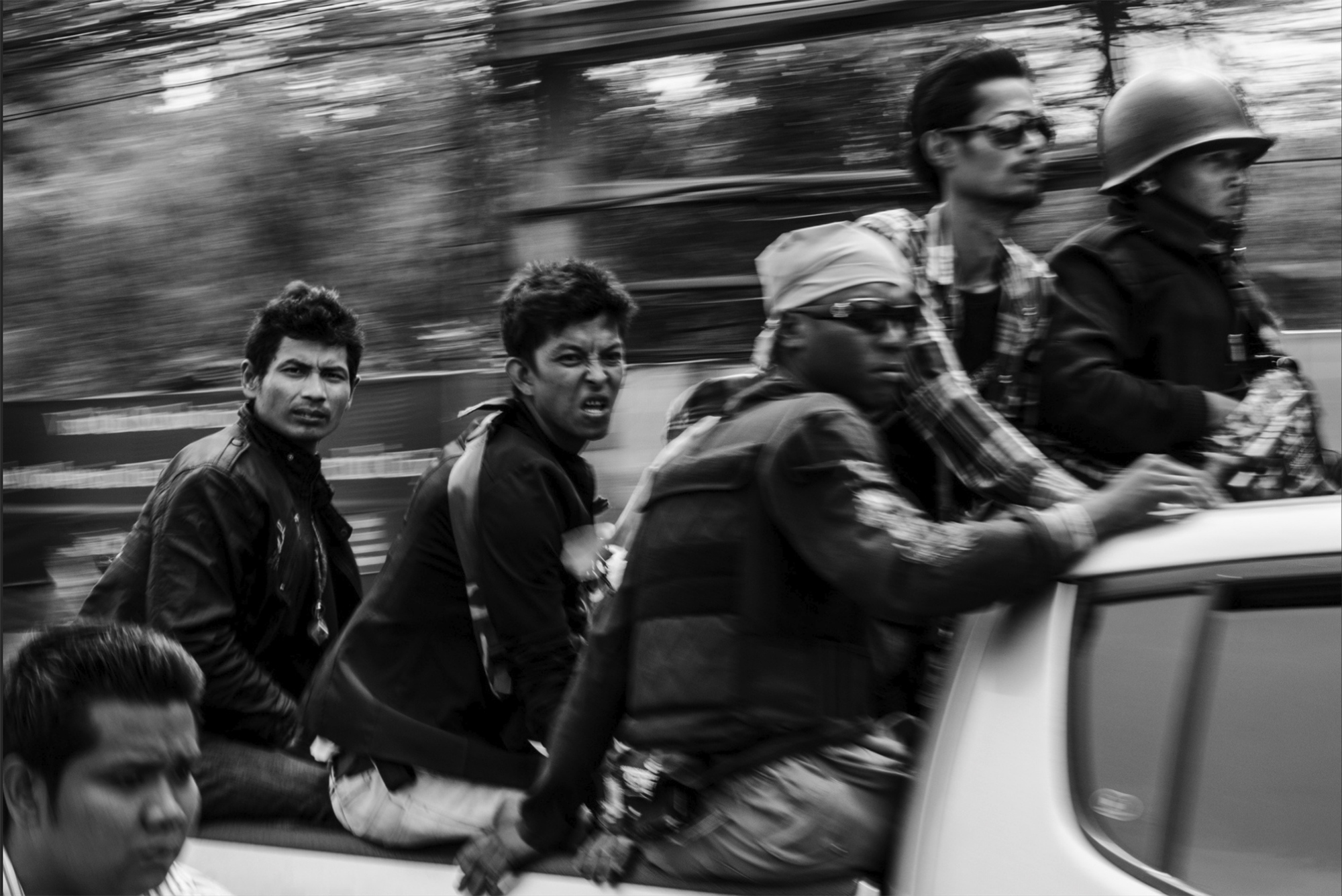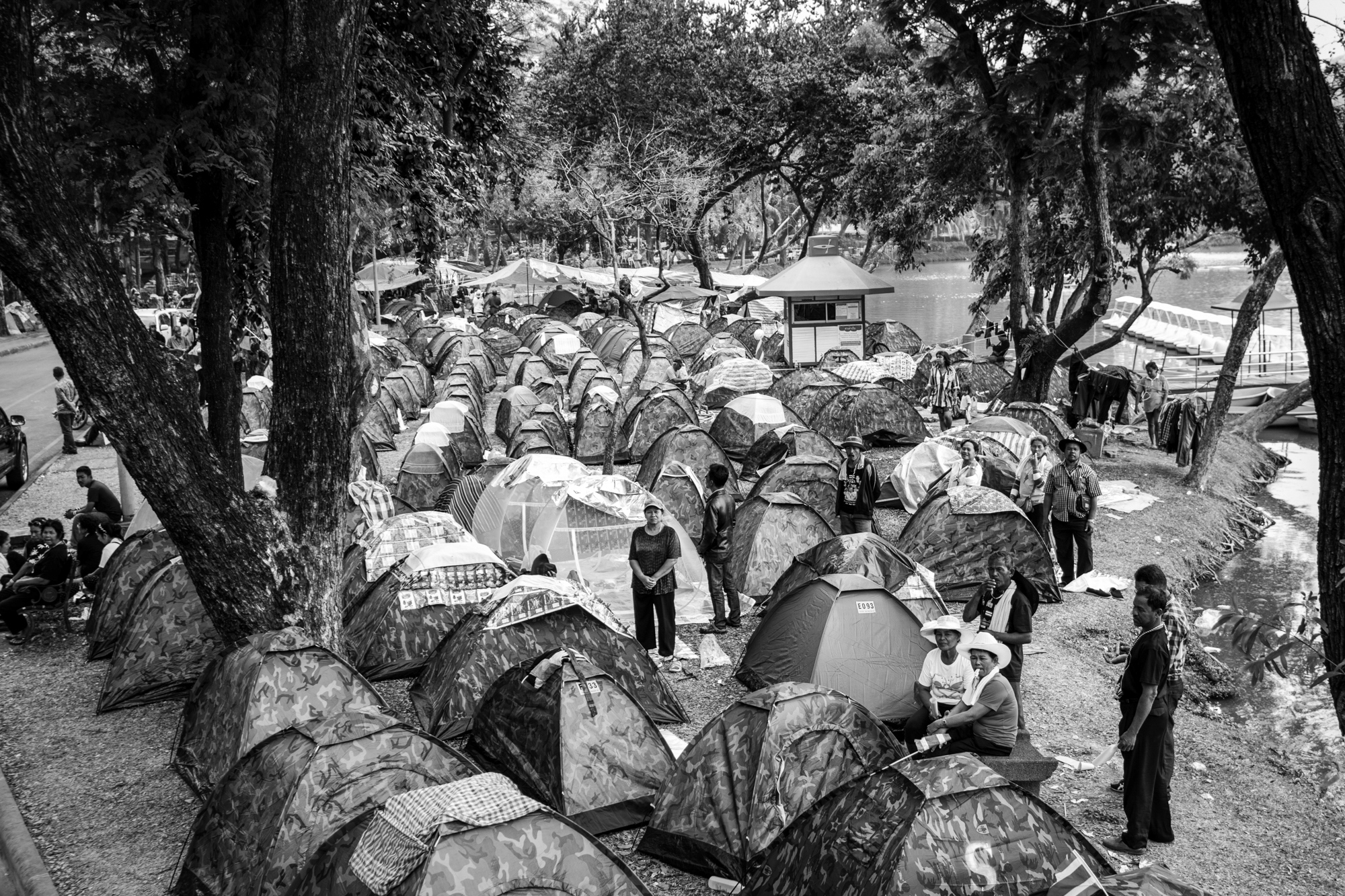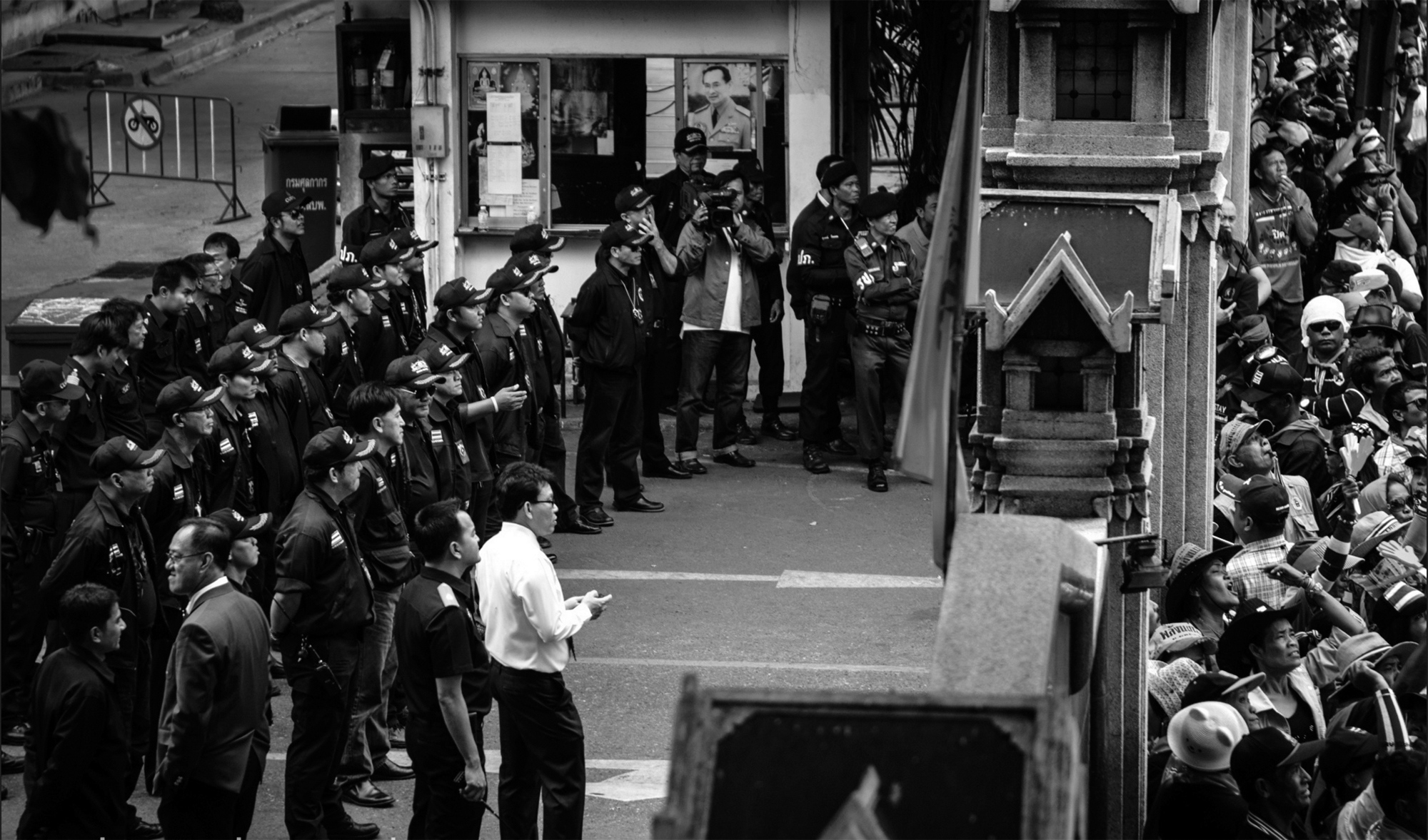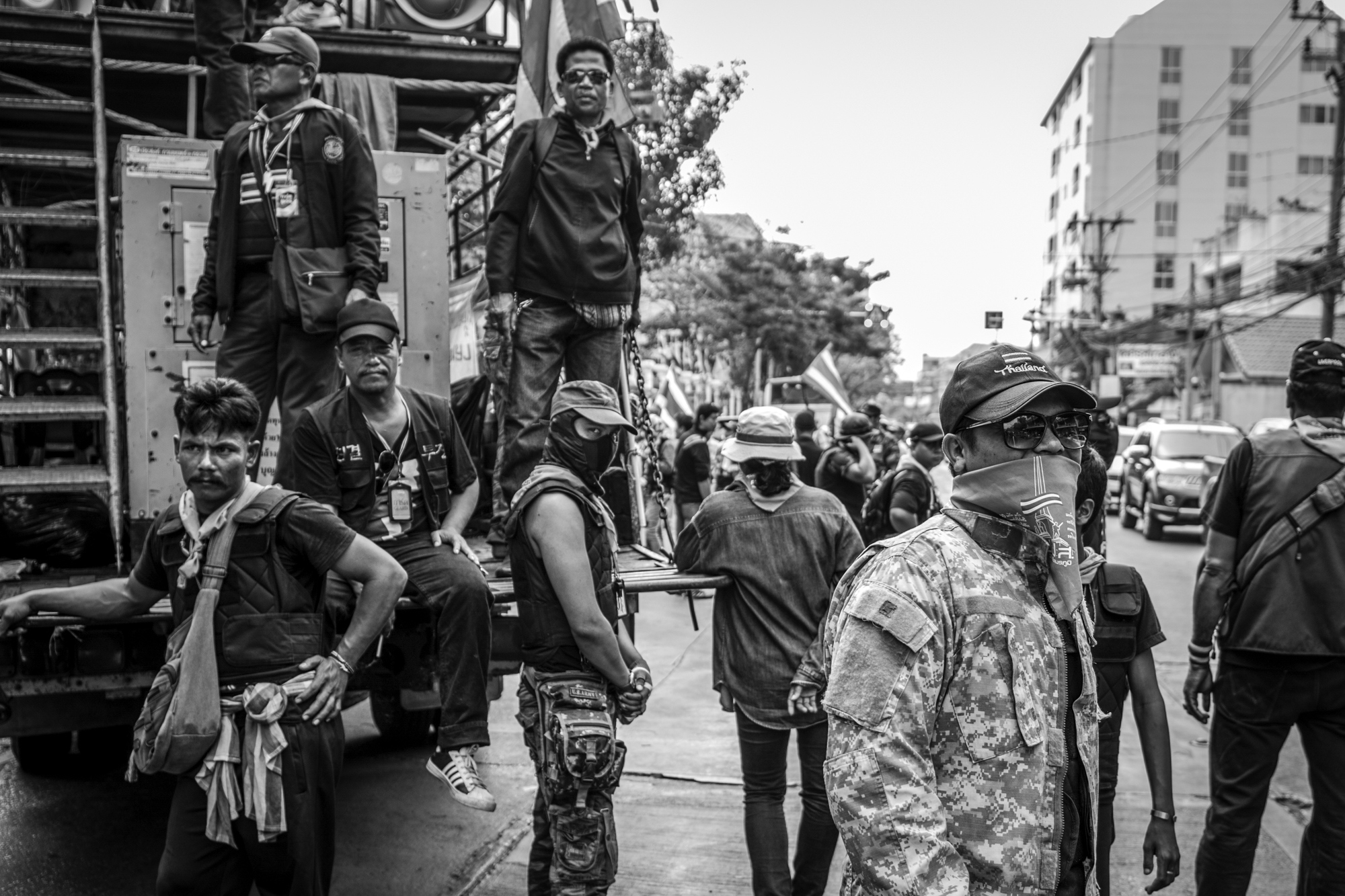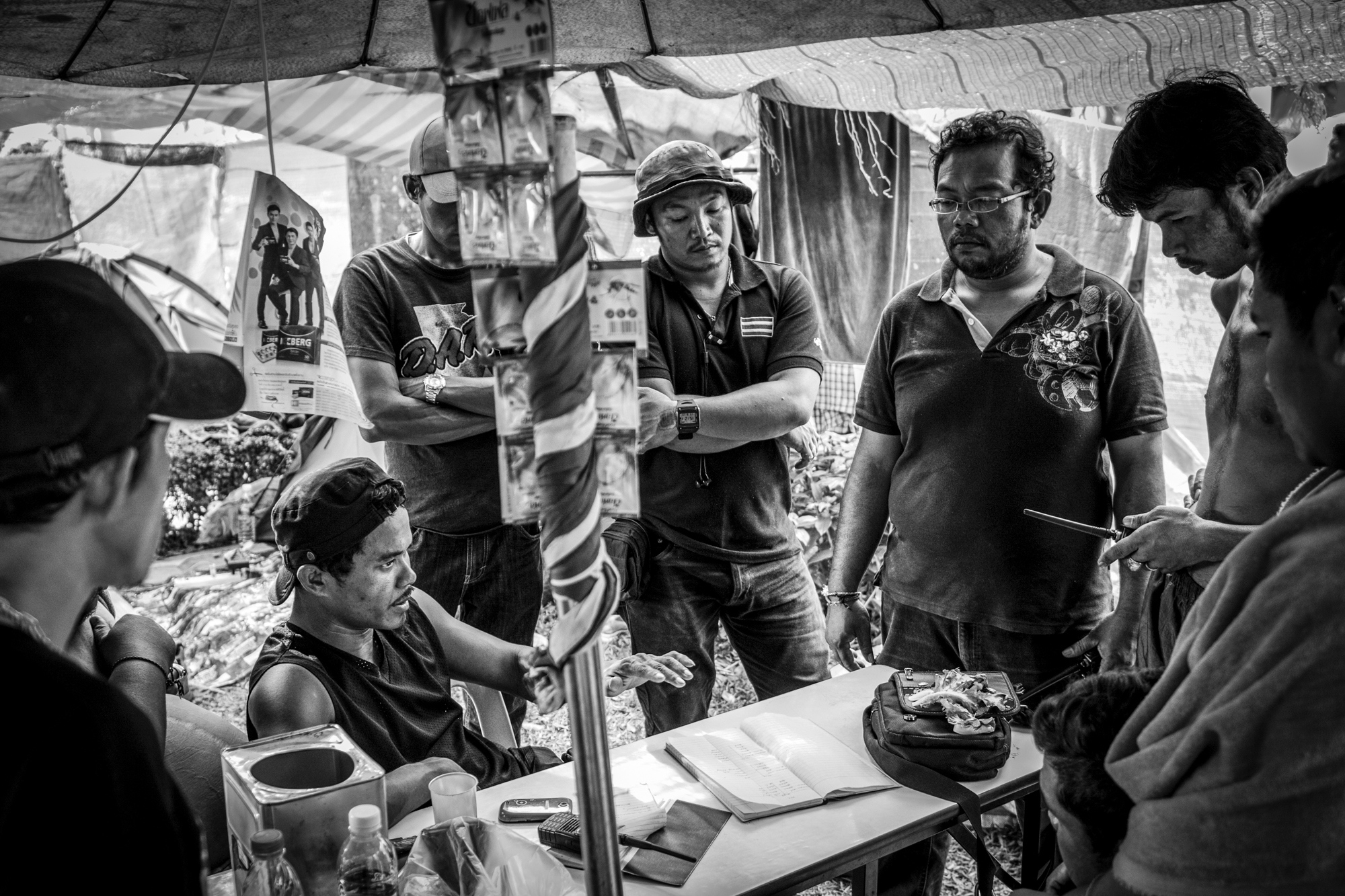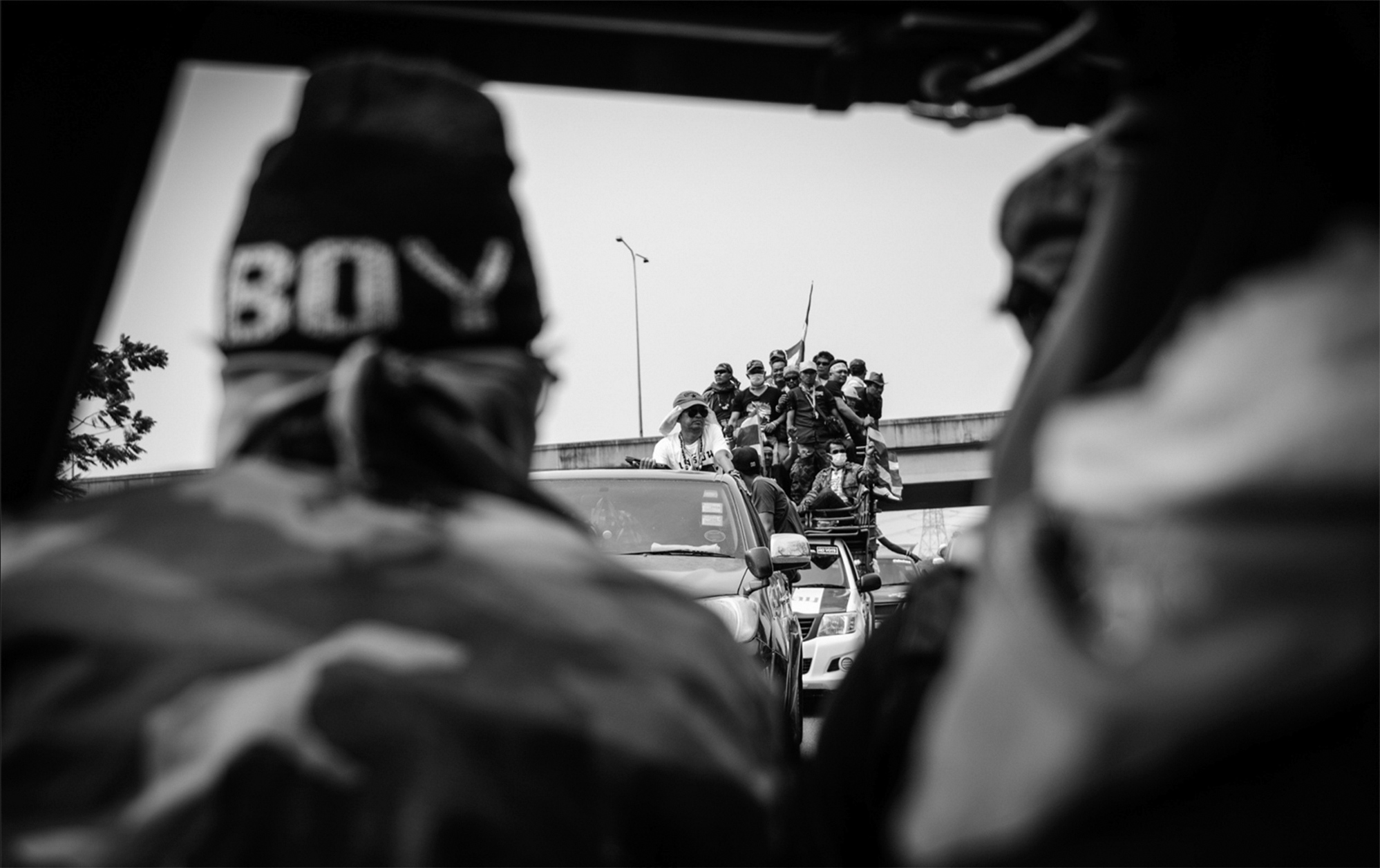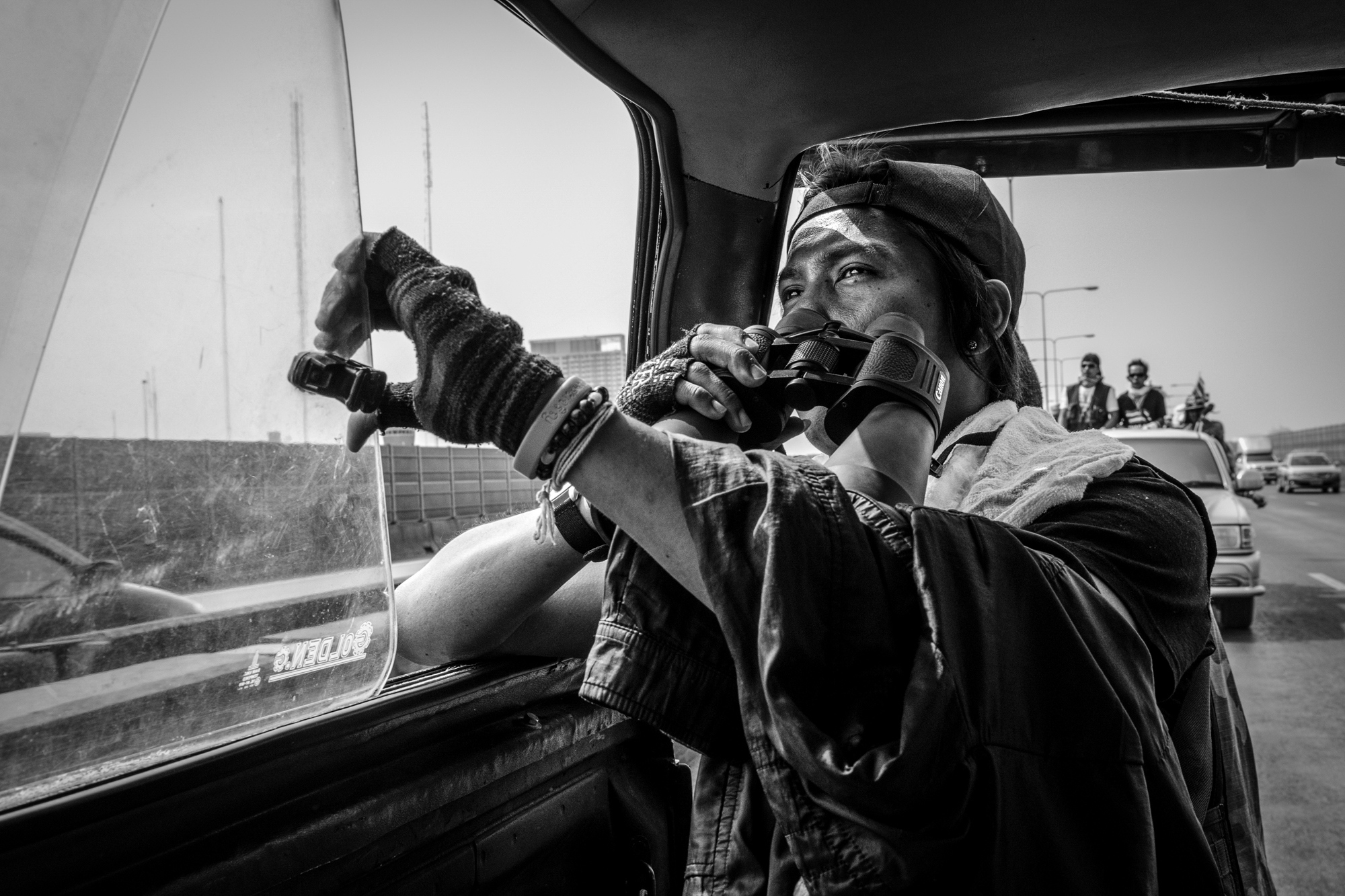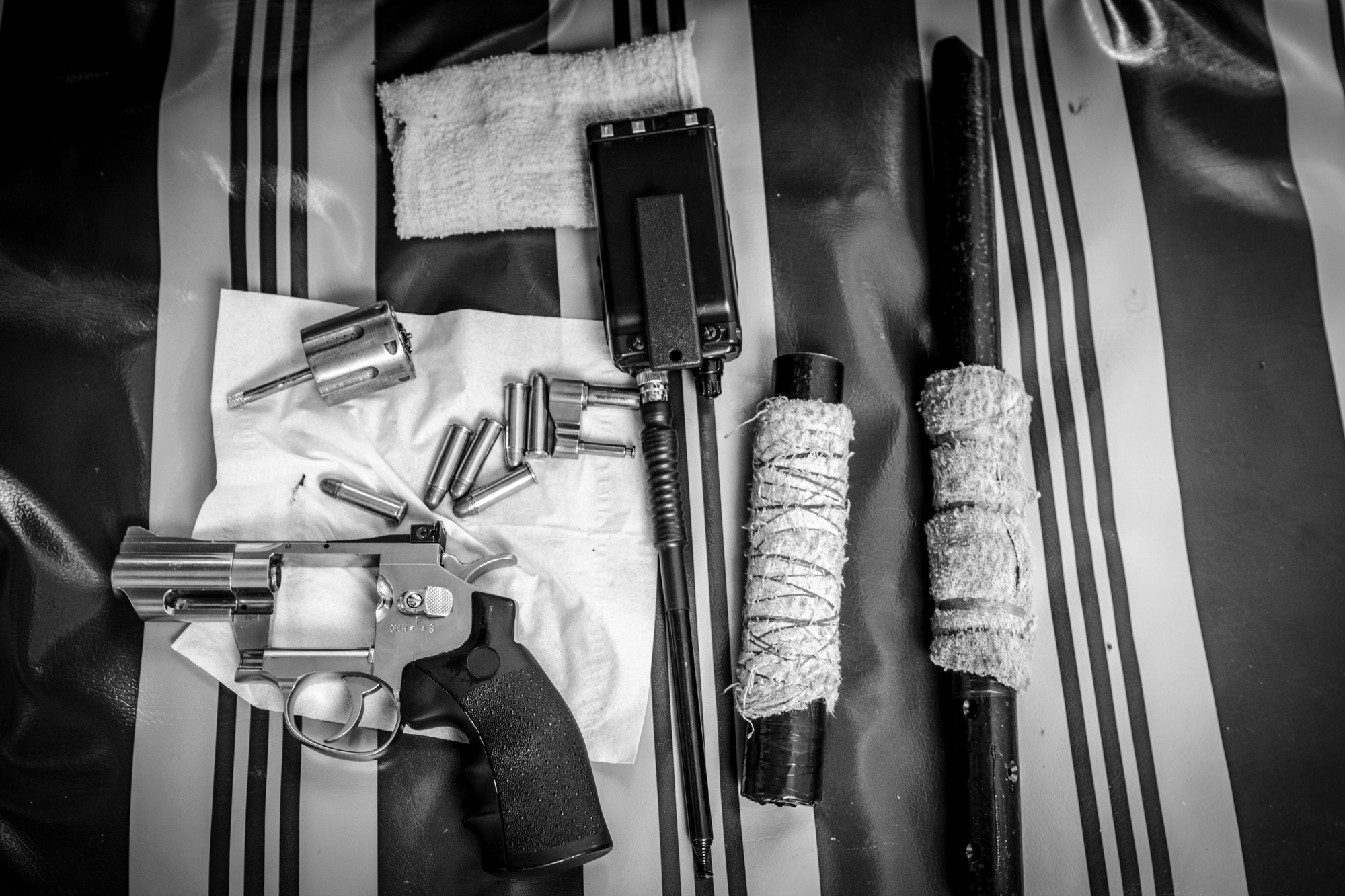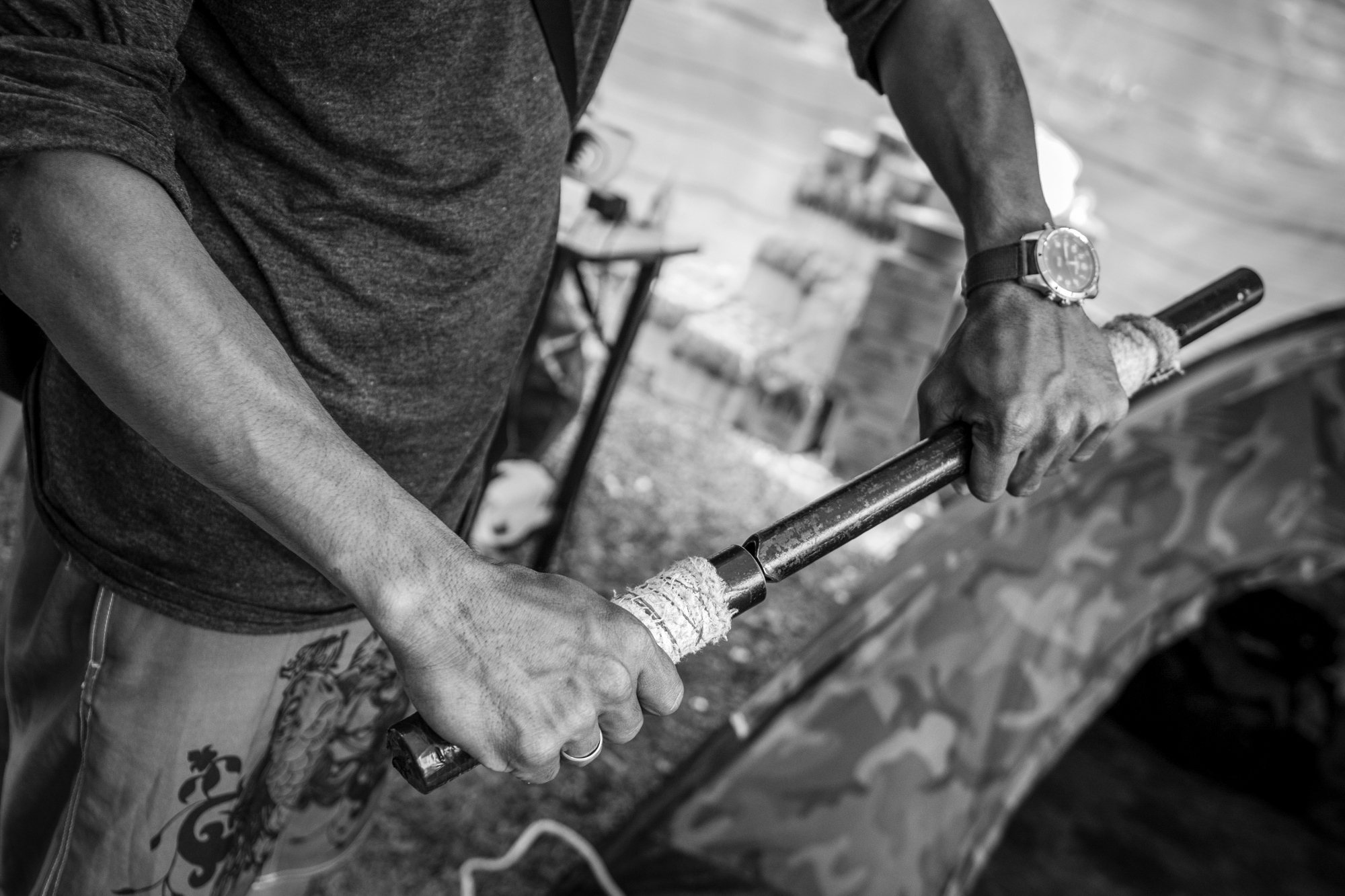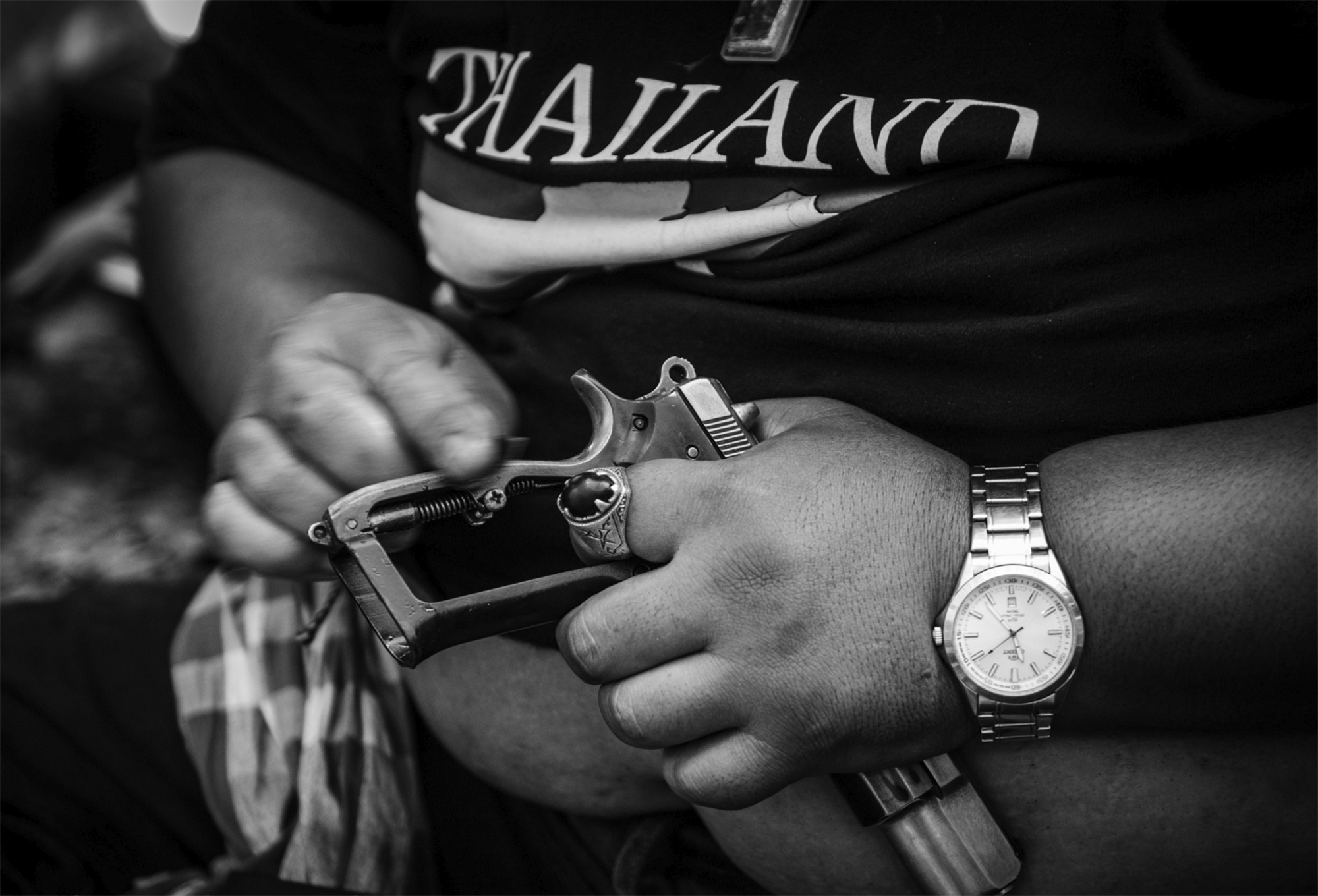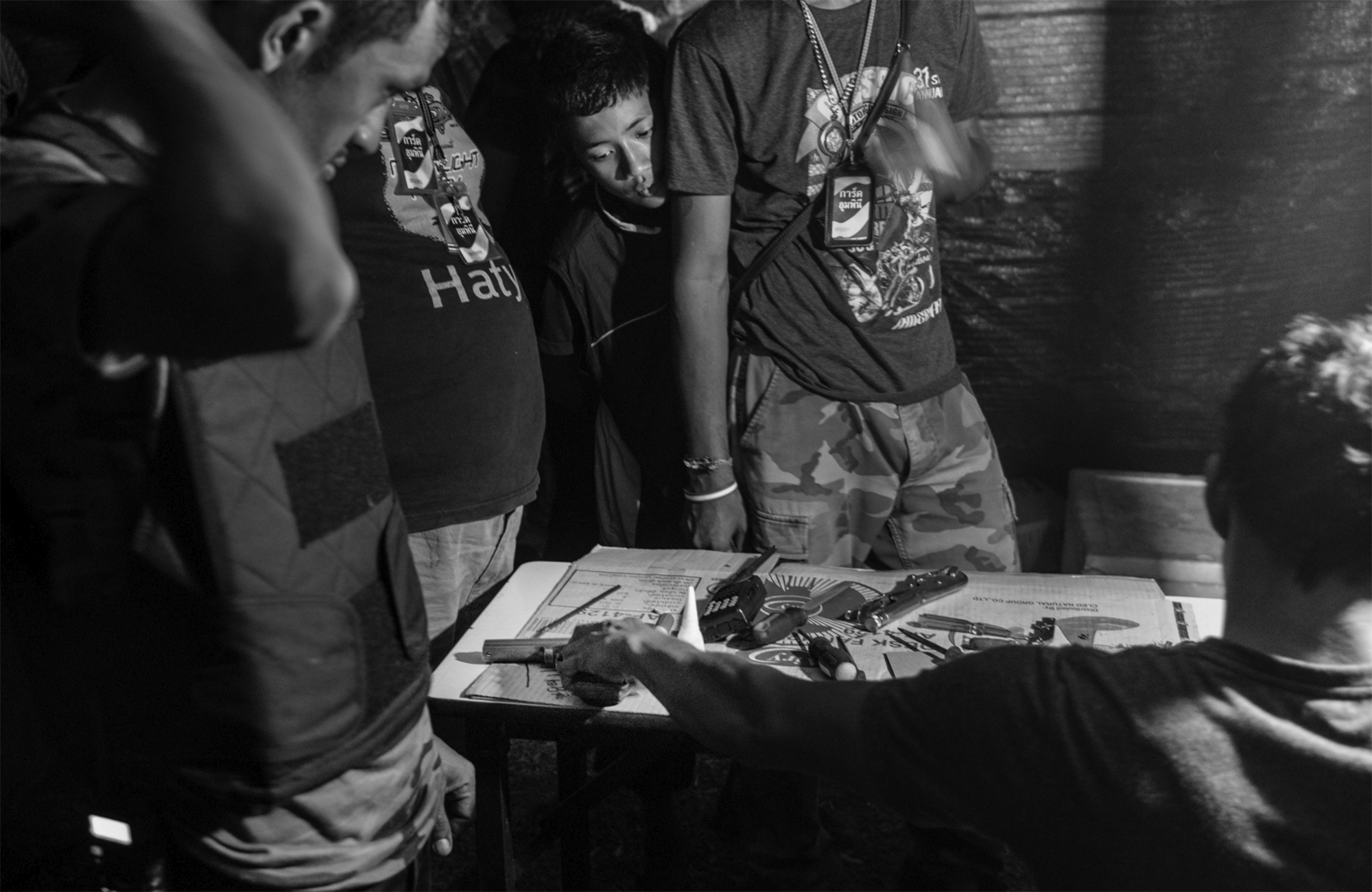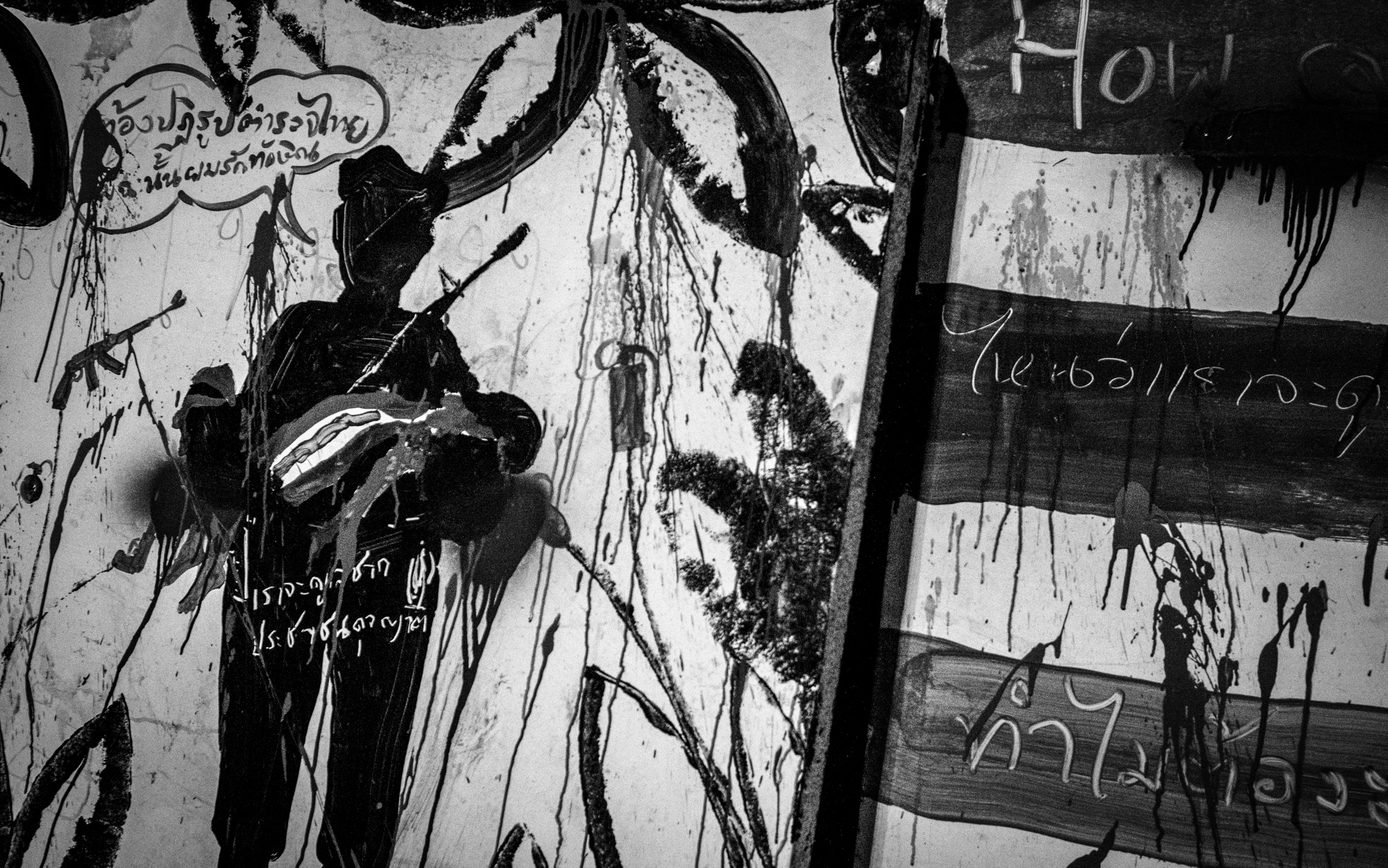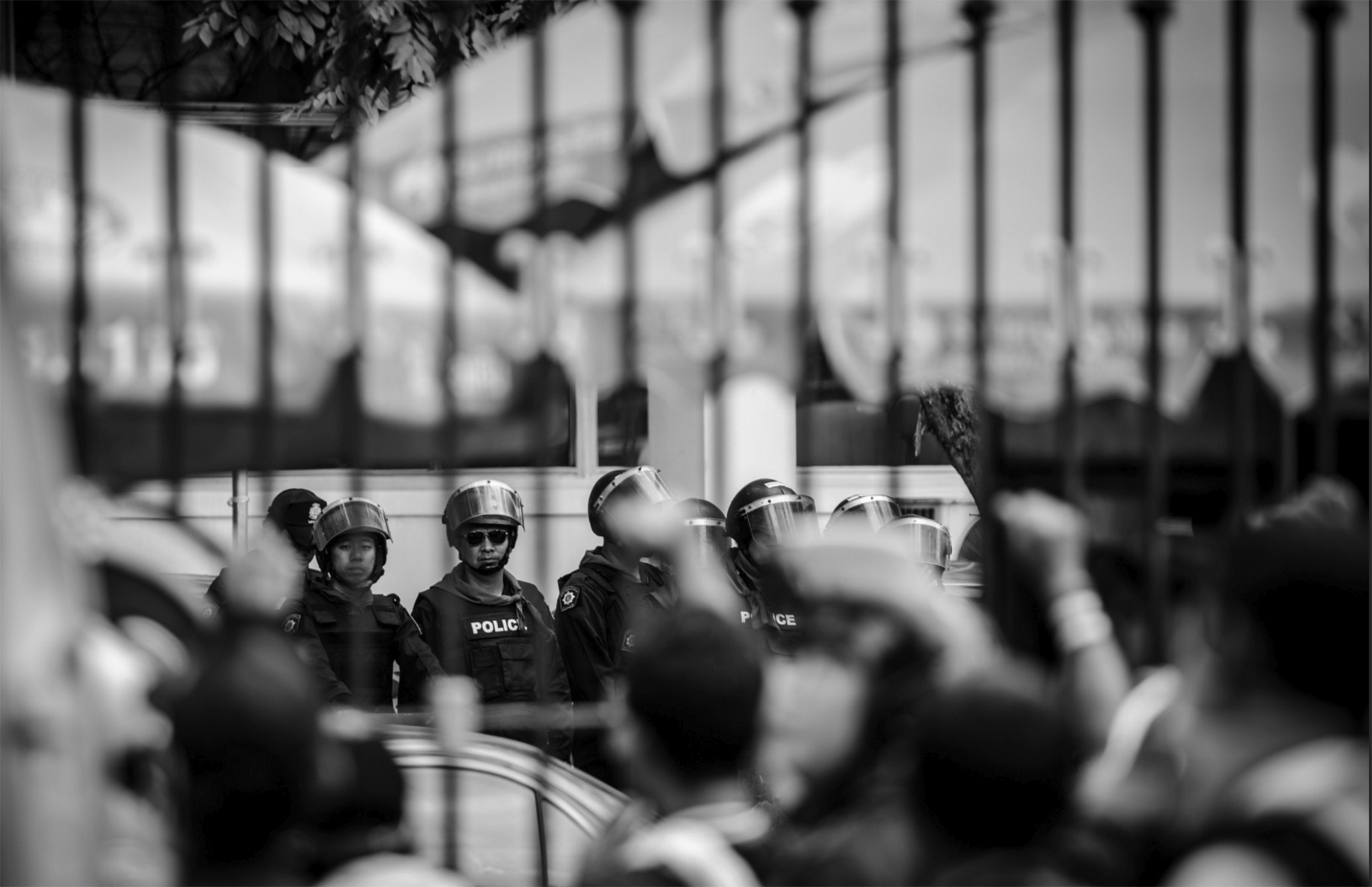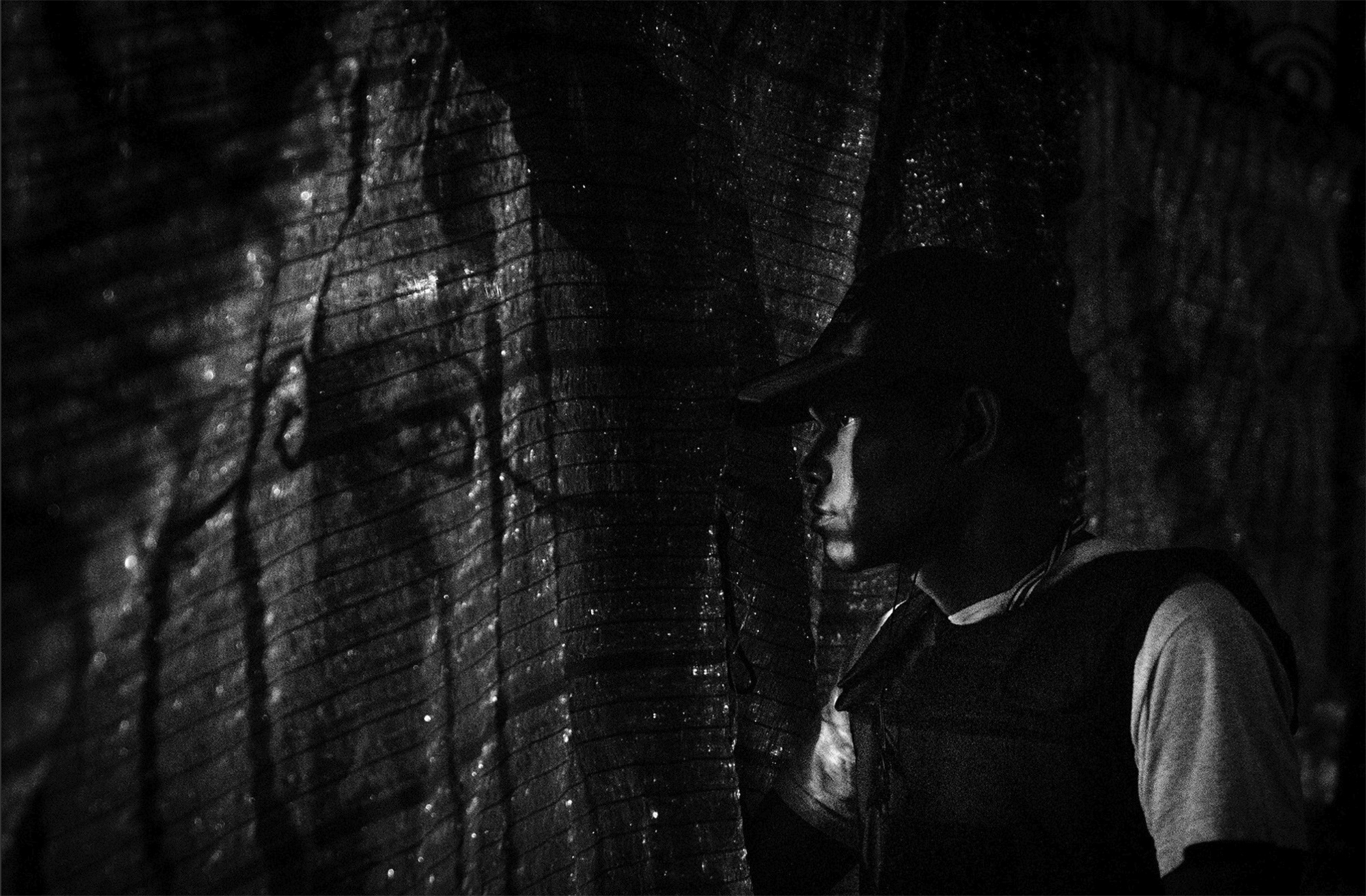In 2006, Thaksin Shinawatra, a billionaire media tycoon and founder of the Pheu Thai party was ousted in a military-backed coup d'etat after facing accusations of corruption. Following his exile, a political crisis developed which saw violent clashes in the streets of major cities and especially Bangkok. Hundreds of Thais were killed in street battles that rocked the country as control of the government abruptly changed hands several times.
The PDRC (People's Democratic Reform Committee) was formed as a nationalist, monarchist, ultra-conservative wing of the 2013 revanchist movement to depose the Shinawatra family and restore "order" to a largely conservative Thai nation. Most the group’s support came from the military, big businesses and the Bangkok elite. Many in the conservative PDRC saw the Shinawatras as the epitome of corruption that has plagued Thai politics for decades. What's more, they saw populism as a threat to the monarchy, long revered as a holy institution even among liberals and a central pillar of Thai history and culture for centuries.
Early 2014 saw some of the worst incidents of violence since the political crisis of 2011. The Yellow Shirts had been making strides to disrupt the democratically elected government – led my Thaksin's sister, Yingluck – while the Red Shirts were busy mobilizing their own counter demonstrations. More than 100,000 Shinawatra supporters would converge on Bangkok in early 2014 when tensions were at their highest.
The Royal Thai Military, sworn protectors of the King, swept into power following a bloodless coup in May, 2014 after the Constitutional Court found the Prime Minister guilty of corruption. The military quickly declared martial law and began dismantling any protest camps that remained. Members of the PDRC and their allies largely welcomed the military’s move, and disbanded their movement.
Shinawatra’s supporters offered little resistance, as the army now had complete control over the country’s affairs, instituting a city-wide curfew in Bangkok and draconian measures aimed at censoring dissent from the media and the public. The question remains whether the junta will restore democracy and address the divisions caused by years of political strife. Elections returned to Thailand only in 2019 in what has largely been seen as rigged, with the military leader, General Prayuth Chan-ocha still in control.
That same year, the ageing King Bhumibol Adulyadej died and the crown has passed to his son, the unpopular Prince Maha Vajiralongkorn, hardly a man of the people. Protests erupted again in response to the poor handling of the coronavirus pandemic but they were quickly ended with quarantine restrictions and the arrest of leaders. Elections are expected to be held again by 2023 but the political divisions remain unresolved.
This small project was photographed in early 2014 while embedded with a security unit of the PDRC stationed in Lumpini Park in the centre of Bangkok. These images were an attempt to document the current situation of Thai politics, episodes which would go on to resemble and foreshadow future moments of public political struggle in a number of other countries like those in the Arab world, Brazil, and Ukraine. I hope to return to the country to continue documenting this popular struggle for democracy and the future of Thailand.
